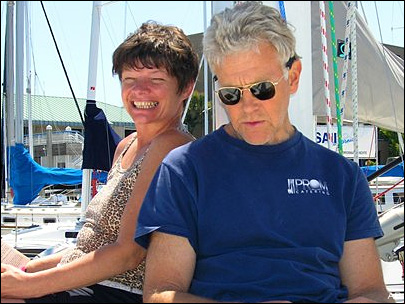
This Tuesday, a federal court in Virginia will begin the first steps in a trial of three captured Somali pirates who will face the death penalty. These three pirates were part of a crew that held four Americans captive in February of 2011, fatally shooting them when a pursuing U.S. Navy destroyer got too close for comfort.
The pirates, holding the Americans aboard their small yacht, were trying to reach land but where being pursued by two American destroyers and an aircraft carrier. As one of the destroyers approached the boat, gunfire broke out. When Navy SEALS boarded the boat, it was already too late.
The four Americans had begun a cruise of the Indian ocean from Oman, and sailed from port to port throughout the Indian ocean before they encountered the raiders. Once spotted, the boat, named the Quest and owned by 70 year old Scott Adam, was an easy target for the pirates. The group of nearly 20 pirates were armed with assault rifles and a rocket-propelled grenade.
The United States soon established a radio contact with the pirates, and eventually two American vessels came to the scene. The Navy and FBI, working together, persuaded the pirates to come on-board one of the destroyers for in-person negotiations. The U.S. agents offered to let the pirates keep the Quest in exchange for the hostages, but the pirates refused.
According to court documents, Scott Adam warned U.S. officials several times that approaching too close would provoke a violent response. The documents also accuse the Navy of causing the killings due to aggressively maneuvering too close to the chip.
The destroyer that approached too close took RPG-fire as the rest of the pirate crew killed their hostages. The Navy SEALS raided the boat soon after, killing 4 of the pirates but saving none of the hostages.
While over 20 pirates have been tried and convicted in the United States for raids on the Indian Ocean, this case will mark the first death penalty sought. Experts believe that the death penalty could send a message to pirates at large, and help deter the already decreasing threat.
Thanks to international cooperation, pirate attacks have dropped dramatically since 2009 especially near Somalia. The capture of 1,200 pirates has brought interesting legal questions to the forefront of the piracy issue. Their home nation of Somalia is too dysfunctional to police its own waters or try and hold its own pirates. For this reason, many neighboring countries have taken on that burden, and even members of western nations from the Americas and Europe.
But as Somalia’s political situation relatively stabilizes, efforts are being made to return the pirates to their home country for trial and imprisonment.